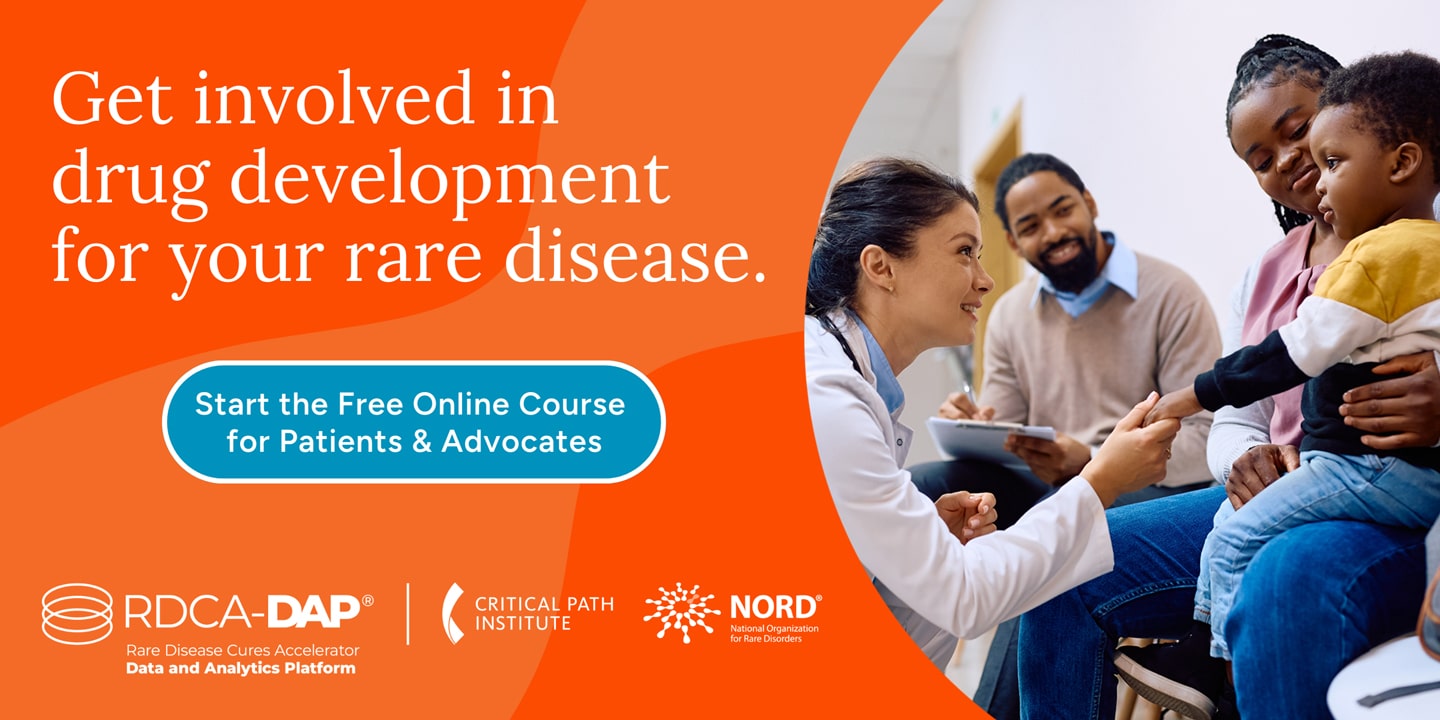In advance of today’s Members-Only Webinar with the Director of NIH NCATS, Dr. Christopher Austin, Swapna Kakani, a summer intern with NORD, wrote the article below highlighting her experience in June at the NIH NCATS Day – Partnering with Patients for Smarter Science. We look forward to today’s special webinar with our network of Member Organizations to continue the conversation on the importance of NCATS for the rare disease community.
On June 30, I attended the NIH NCATS Day – Partnering with Patients for Smarter Science at the NIH campus in Bethesda, MD. NCATS stands for the National Center for Advancing Translational Sciences. It is one of the 27 institutes at the National Institutes of Health (NIH) and was started in 2012. This event was a first of its kind for NCATS, but definitely not the last!
The goal of the day was to explain the programs and initiatives under NCATS, current collaborations between NCATS and patient foundations, and most importantly for NCATS staff to be a listening ear on how they can partner with patients moving forward. The director of NCATS, Dr. Christopher Austin, explained the NCATS approach to translational science and the genuine desire for NCATS to have more patient engagement within each of their programs. From the start of the event, the patient was made the focus of every presentation. The NCATS team and Dr. Austin were a part of each session, actively taking notes. A NCATS researcher said, “Patients are the only source we can get disease information from.” I was very impressed by their focus on patients during this event.
Each NCATS individual program is seeking a novel way to speed up the access to patient therapies from accelerating the steps required to go from bench to clinical trials, to being smarter about how we share a patient’s medical data. Each program is providing opportunities for patient engagement! Details on each program can be found at ncats.nih.gov/programs.
The NCATS Programs and Initiatives:
- NCATS Division of Pre-Clinical Innovation
- Therapeutics for Rare and Neglected Diseases (TRND) & Bridging Interventional Development Gaps (BrIDGs)
- Tissue Chips for Drug Screening
- New Therapeutic Uses (NTU) Program
- Biomedical Data Translator
- Office of Strategic Alliances (OSA)
- Clinical and Translational Science Awards (CTSA) Program
- Office of Rare Diseases Research
Attendees included a mix of leaders from patient advocacy foundations; such as Aplastic Anemia and MDS International Society (AAMDS), Autoinflammatory Alliance, Blue Hat Foundation, Alpha-1 Foundation, NGLY1, Bridge the Gap SYNGAP, Hermansky-Pudlak Syndrome Network, Children’s Tumor Foundation, Friedreich’s Ataxia Research Alliance, Parkinson’s Disease Foundation, Connecticut Rare Action Network, and National Health Council; and research universities & organizations; such as Northwestern University, Beth Israel Medical Center, the Angelman Biomarkers and Outcome Measures Alliance, and the Patient-Center Outcomes Research Institute (PCORI). But, most importantly present among this group were individual patients/caregivers. The discussions were rich, and NCATS staff respectfully wrote down every single voiced idea (it was a long list!). From this long list of ideas from the patients, the needs observed were: health literacy, health accessibility, and collaboration.
As a result, the group in attendance felt it was a priority to educate patient and physician communities about research literacy, rare disease literacy, and more in a language people can understand. We also agreed we need to empower collaboration between patients, patient foundations, and research investigators in order to move science forward! Patients need to be familiar with their local clinical and translational science sites (CTSA). NCATS has 60 CTSA sites at university medical centers across the U.S. These programs work together to accelerate the drug development process, but they also act as local liaisons for patient communities to coordinate care and work with NCATS. Finally, the patient needs to continuously be engaged in the development of initiatives and program days such as this one. With these suggestions, we hope that at the next NCATS day, more patients and disease foundations will be able to attend and be a strong voice at the table.
The Future and How You Can Get Involved:
NCATS is already thinking ahead and is about to release a toolkit to help patients, caregivers, and their support organizations navigate the translational science world! Keep your eyes on the Office of Rare Diseases Research’s NCATS Toolkit for Patient-Focused Therapy Development. On September 8, NCATS will have a demonstration and dissemination meeting for the toolkit. If interested, learn more about attending the event at https://ncats.nih.gov/events#toolkit
NORD staff and member organizations were active participants during the day’s discussions. As an organization, we took note of the need for health literacy, health & research accessibility, and collaboration. Stay tuned in the near future for webinars and initiatives on these topics!
As a rare disease patient myself, I was impressed with NCATS effort, to seek the patient community’s viewpoint. I look forward to similar conferences at the NIH, more collaboration between all invested partners, and exciting medical breakthroughs for the rare disease community in my lifetime!



